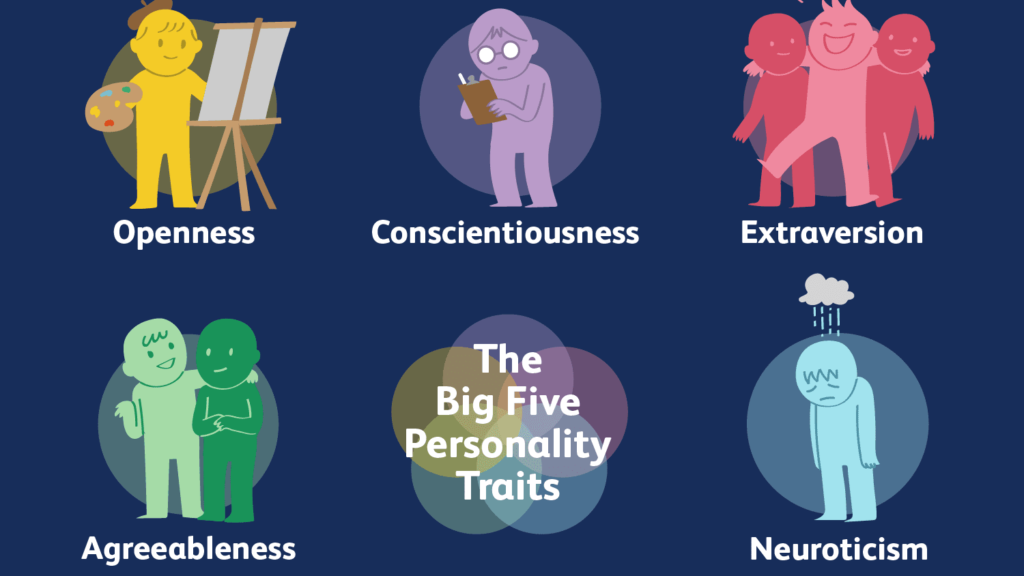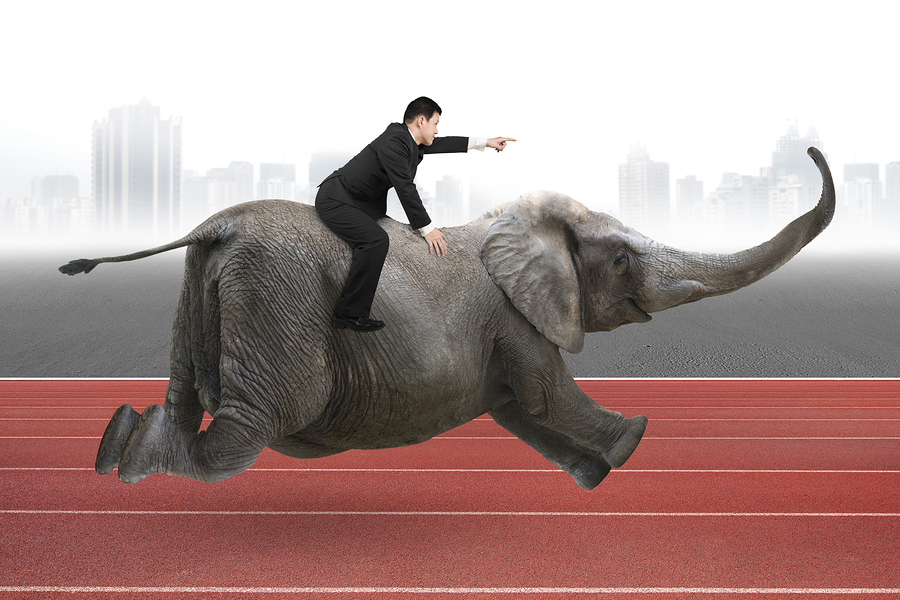Since I started running I have followed lots of training plans. At that time I had to buy them from books. Nowadays you can find most of them for free on the internet. Some were better than others. Some training plans had a happy ending (read getting a new PB), some others resemble a drama (read got injured or other unwanted happenstance). Then I thought, what would happen if I hire a coach? Will he throw me a modified version of a training plan he got from a book?
Let’s think about it a second. A training plan is just a system with some inputs and one output. The output is the training plan itself. The number of inputs, depending on how sophisticated the system is, can vary a lot. Some of the most common are: number of weeks, peak mileage, difficulty, run frequency etc. You give a bunch of parameters and maybe some money, and you get your training plan. Then you become accountable for what’s happening next. What about a coach?
A coach and an online training are similar: You give the coach some inputs, and in return they give you a training plan.
If so then the coach is useless and we can all rely on sophisticated training plans… Actually it’s a little more complicated than that. You see, the key here lies in the complexity of the inputs. Let’s analyze what kind of input you can give a coach that you cannot give Google.
The specific physiological input
I tried to bake my very first chocolate cake when I was 10 years old. It tasted very bad. It was too bland. I thought there was something wrong with the recipe, or maybe I was just plain bad at making cakes. Then my mum asked me “why don’t you add more butter ?”. Just like magic, the cake went from bad to good. I didn’t need another recipe, I just needed an adjustment.
A training plan assumes you lack a little bit of all ingredients. It assumes that you don’t necessarily have a strength nor a weak spot. So generally it places equal importance to all types of workouts. However, you might be very good at 5k but lagging as the distance increases. Or conversely you might be very good the longer the distance, but get worse as the distance gets shorter.
In other words the athlete might just need a bit more butter, rather than a bit more of everything
Let’s dive into a concrete example. Two of my athletes have completely different strengths and weak spots. Let’s call the first one Renaud (for the sake of anonymity). His 5k time up to half marathon time are pretty much in line. He’s good on the track as well. But when it comes to the marathon, like many of us, muscle failure hits during the last 10km.
The second one, let’s call her Rika (for the sake of anonymity), is the total opposite. She struggles at the track, but her marathon times are very fast relatively to her 5k times.
For the same race, and same target weekly mileage, an online training plan would most likely give both of them a very similar program. You see what’s going on? We are facing here the cake problem.
What we need to address is the individual strength and weakness of each. Google cannot do that.
Renaud’s training schedule had a generous diet of marathon pace long run: 12 weeks before an A-race, almost every weekend. Rika on the other hand, has virtually none, only one marathon pace long run in each cycle. Renaud needed sugar not butter, Rika needed butter not sugar.
In 18 months, Renaud shaved 14 minutes off his marathon time from 3:11 to 2:57. Rika in the same period improved her marathon time by 13 minutes from 3:18 to 3:05. Both had very different training programs.
Besides being athlete specific, a coach will design the training to be race specific (especially for longer races such as hilly marathons and ultra marathons), taking into account the nutrition, the terrain, vertical distance etc. But that’s another whole topic that goes beyond the scope of this article.
The psychological input
With the progress of technology, more and more human tasks are being taken over by A.I. Just look at your phone, see all the things it can do now. But teaching is one of the few areas where there is still a consensus that it will remain un-impacted in a near and medium term future. And one of the reasons is that human psychology, due to its infinite nature, cannot be modelized. With its 100 billions neurons, the human brain is considered to be the most complex thing in the universe, allowing all human beings to be unique. So no matter how sophisticated your model is, it can only fit to a certain degree (by definition of a model).
That being said, being unique does not mean we cannot observe common traits. 7 billion people does not mean 7 billions personality traits. Psychologists have come up with lots of models, and one of the most widely used is called the Big Five Personality Traits aka OCEAN.
When I go on vacation with my wife, I notice that she always takes longer to prepare her bagages and that they are much heavier than mine. I usually don’t spend much time overthinking what I would need, telling myself that I could always improvise or buy it if necessary. But she always thinks about all sorts of scenarios (weather too cold, too hot, iphone chargers, medicine, snacks etc). That is explained by a human trait called Neuroticism, one of the 5 traits of the OCEAN model. This trait is also reflected in all aspects of life in general, including, you’ve guessed it, running.
The degree to which an athlete might be stressed about the idea of having a hard workout will vastly be explained by their neuroticism level.
And thus, I firmly believe that taking into account the athlete’s psychology is a crucial aspect of coaching. To do so, going by a model, can provide valuable help.
The big five personality traits aka OCEAN
I don’t know how other coaches take into account psychology, but OCEAN is the model I have been using.You might ask: Why do I put so much importance on psychology?
Can’t you just read some books and research and give the athlete what the books says or what the latest research says?
The short answer to that is no. Just for fun, let’s take a mathematical approach to answer that question. In math, all theorems and corollaries are based on axioms (hypothesis). For example Euclidean geometry assumes that a straight line segment may be drawn from any given point to any other (sounds obvious but that’s actually an axiom or the hypothesis if you will). Based on that, many theorems can be demonstrated.
Running is a repetitive sport, a skill. Mastering a skill is only approachable by consistent repetition, practice over a long period of time (axiom, hypothesis). So the best way to improve running (or any other skills for that matter), is by consistent training over a long period of time. So even if the research says that method X is the most efficacious, if the athlete cannot follow the protocol and gives up, that method becomes useless. In other words:
The best method is not the most efficient on paper, it is the one you can stick to over a long period of time: consistency over time vs incoherent sparkles.
The shortest path to get from A to point B might not be the best. The “best” method is not the one found on research paper, but is the one your brain can stick with. And to find what your brain likes, I believe psychology is the missing piece of puzzle google or any other AI cannot provide.
Back to the OCEAN model, the five traits are the following:

| Traits | Description | Low score | High score |
| Openness | Degree of intellectual curiosity, creativity and preference for novelty | consistent, cautious | inventive, curious |
| Conscientiousness | Tendency to be organized and dependable, hard-working | easy going, careless | efficient, organized |
| Extraversion | Tendency to seek the company of others and talk | solitary reserved | outgoing, energetic |
| Agreeableness | Measure of one’s trusting and helpful nature | Uncooperative, detached | friendly, compassionate |
| Neuroticism | Predisposition to psychological stress | secure, confident | sensitive, nervous |
Each trait will have an influence on how the athlete sees and perceives the training. Let’s dive into some examples:
One of my athletes has a strong extraversion trait. Let’s call him Nick (for the sake of anonymity). Extraverts are energized and thrive off being around other people. Being with people gives him energy and reduces his anxiety and perceived effort. So when he asks me whether it’s ok to run with a friend doing a somewhat remotely similar workout, but definitely not the same as what I had scheduled for him, I will probably not refuse. Because if I do, that can potentially strip out his enthusiasm, his motivation to run, to train and just increase his anxiety.
As the goal is to keep training consistently over time, then I believe this is the “best” workout, not the one on paper.
Another one, let’s call her Kim (for the sake of anonymity), has a high conscientiousness, and a moderately high neuroticism. She is very focused on getting the tasks done, organized, and takes obligations to others seriously. Conscientious people exhibit a tendency to show self-discipline, act dutifully, and aim for achievement. But being a bit neurotic means that she has a tendency to worry, to be anxious, to be stressed out, to be nervous. What it means concretely is that she will go out her way to execute the workout, exactly as planned, but if for some reason she cannot meet the requirement of that particular workout, she might take an emotional impact. Her self-confidence can take a hit, and this is what we really want to avoid because self confidence is crucial in order to progress in the training. So sometimes, instead of going by pace, we’ll go by feel, or sometimes instead of a precise pace (say 4:20), I would give a range (4:15 ~ 4:25). If I’m in the middle of a training plan and I suddenly cannot complete a key workout, what should I do? Move on and stay on plan? Or retry next week and to be late in the plan schedule?
We want to avoid the athlete the feeling of being helpless when “failing” to hit a key workout during a training plan, to lose self-confidence.
Some of my athletes are high achievers, very high conscientiousness, have a very low neuroticism trait, moderately high openness to experience, average agreeableness trait. Let’s call them David and Chih (for the sake of anonymity). Both of them hardly lose their self confidence, they are the typical pragmatic warriors, they give their best shot at each session, whether they hit the target or not, they move on to the next target real quick. They recover very fast mentally. So their difficulty progression slope is steep, steeper than the average program, because they can mentally handle it. Their workouts are written with high precision, very precise target splits and distances. On top of that, because of their openness trait and somewhat agreeableness, I was able to put them into a weekly 36 hours water fast. They went cold turkey, without any complaint.
When I first met David, he told me “I’m not looking for a cheerleader”. There were some times where my sadistic side attempted to kill him with a tough workout. He would just do it and would ask me for more…
For this type of athlete, my job as a coach is NOT to motivate them, it is to make sure they don’t kill themselves, and to leverage their mental toughness at the same time.
But is life just about running? In terms of time spent per week, it is only a fraction of what we do. If you run one hour per day, that’s just 4% of the day. However 4% or whatever percentage of the day it may be, we tend to view it in isolation. But can we? Is it realistic ? If I tell you “can you drive me home? it’s only 5km from here”. It sounds easy, but having to drive 5km across Shibuya and Shinjuku or 5km through a countryside road of Saitama is not the same story: the context matters. I have a friend, let’s call him Padraig (for the sake of anonymity) who often writes in his blog that he’s being caught by “real life events”.
What I mean is that if you had a rough day (tough day at work, kids sick, argument with your partner), you will be mentally tired, and completing a tough workout will be much more difficult (research paper on the link between mental fatigue and athletic performance can be found HERE for the geeks out there)
In other words, running cannot be taken in isolation and emotional stress has to be taken into account.
That’s why I often ask my athletes questions about work and family, their quality of sleep and how their life is going. If they are going through a hard and stressful time of their life, doubling down on the training is not a good idea and can only make things worse. In that case it is the duty of the coach to accommodate the training accordingly.
I believe a good coach needs to understand what’s going on the athlete’s mind and sees it from a broader perspective. Therefore communication is a crucial aspect of coaching. The coach is not the boss, the coach is the athlete’s partner and ally. Google cannot do that.
In summary, when you buy a 5 months training plan, the path is set. When you’re hiring a coach for 5 months, the path progresses by following a physiological and psychological feedback loop, week by week.
So should I get a Coach?
With all that being said, one might wonder now: Is it necessary to hire a coach to achieve your goals? The short answer is NO.
For one, the vast majority of runners don’t have a coach and a large portion of them achieve their goals. That is a fact. I ran my first sub 3 hours marathon while being self-coached. I have a friend, let’s call him Emmanuel (for the sake of anonymity), who has mastered the art of following and making a training plan successful. He has shaved probably over 40 minutes of his first marathon finish time and has run multiple sub 3 hours marathons.
Secondly, depending on your personality traits, hiring a coach can turn out to be counterproductive.
Someone who has very low levels of agreeableness and openness to experience, will usually not care about how people feel, they want to know what google says. There is nothing wrong with that, it is just that a relationship will be hard to establish. Thus, this category of people will thrive more on being self coached.
In the end a coach is a human being, and therefore, the relationship between the apprentice and the coach is extremely important. Without trust from both sides there cannot be any possible relationship nor peace of mind.
Psychologist Jonathan Haidt introduced a useful analogy for thinking about behavior change. Haidt argues that we have two sides: an emotional side (the Elephant), and an analytical, rational side (its Rider), so the rider on their elephant represents our brain in its whole. The rider has to deal daily with a constant flow of tasks in addition to dealing with their own elephant (emotions). You want to lose weight but can’t resist that beer? That’s the battle between the Elephant and the Rider.
“Perched atop the Elephant, the Rider holds the reins and seems to be the leader. But the Rider’s control is precarious because the Rider is so small relative to the Elephant. Anytime the six-ton Elephant and the Rider disagree about which direction to go, the Rider is going to lose. He’s completely overmatched.”
Jonathan Haidt

Hiring a coach is like having a second rider, someone that can give an objective input and view from a detached bird’s eye, someone who is detached from the athlete’s elephant.
Finally, just like when you enter a school, university, a karate class, a yoga class etc. you enter a system where you learn, and each layer of learning is built on top of the previous layer. In that system, you know how to move forward, how to get your degree, to graduate, to go to the next level etc.
This system is called “protection, care, guidance”
This is a bit like a parent and child relationship. As a doting parent, you care for your children, guide them in the right direction and protect them from the nuts out there. I personally believe that a good coach should create a “protection, care, guidance” for their athletes.
if you like the article, please subscribe to our newsletter HERE

Very interesting article, logical and persuasive about hiring a coach. Thank you for sharing your philosophy.